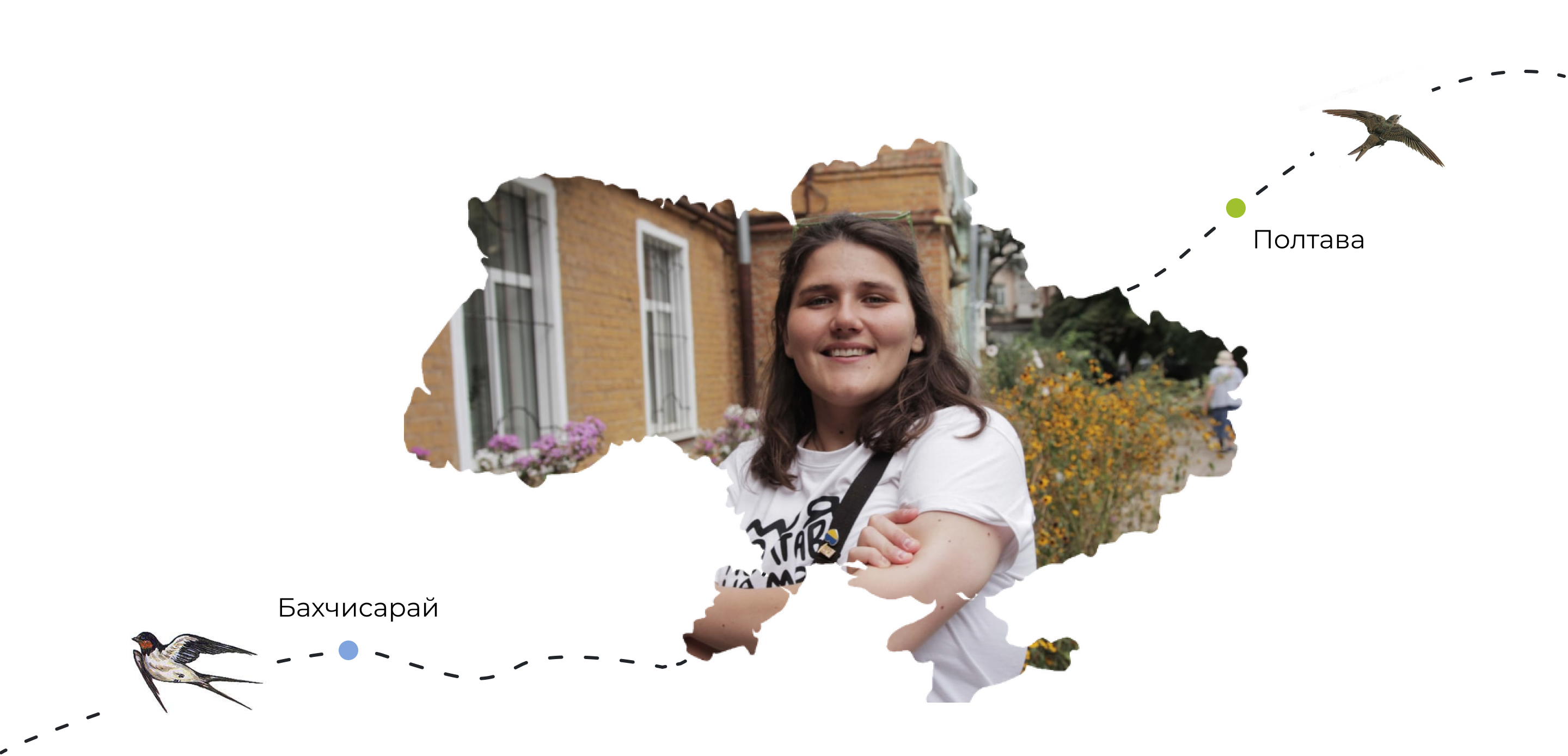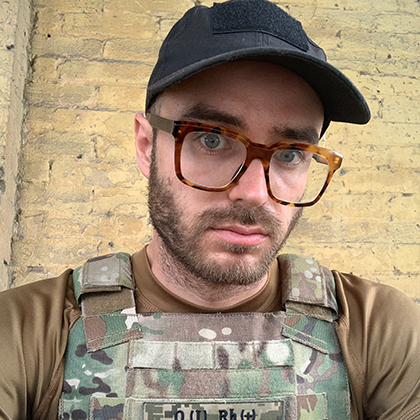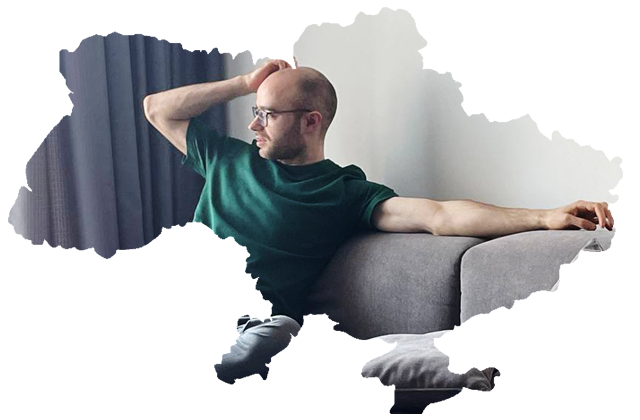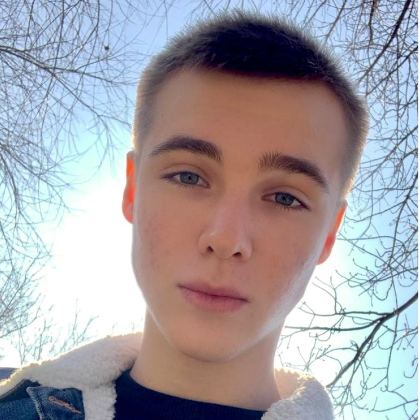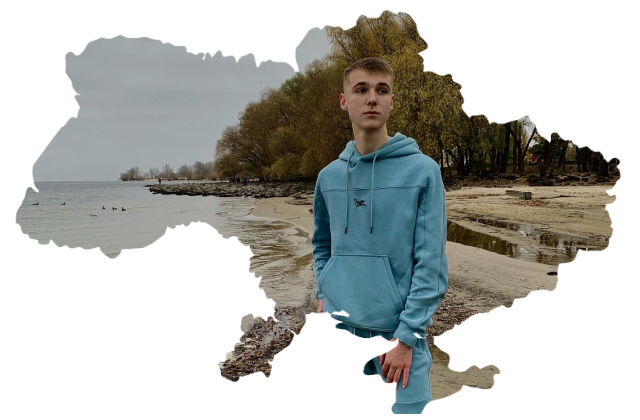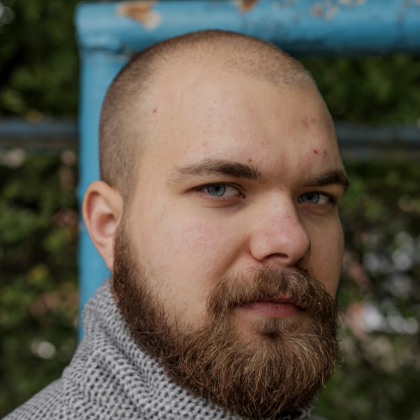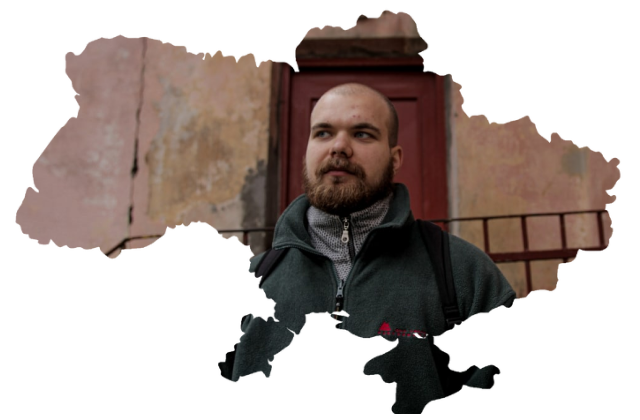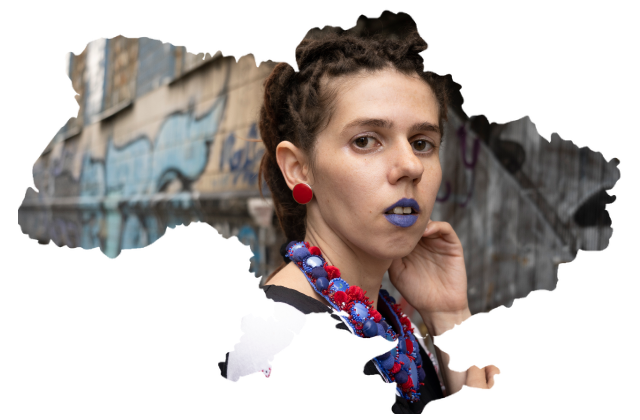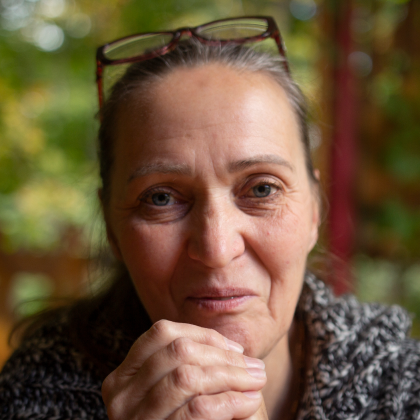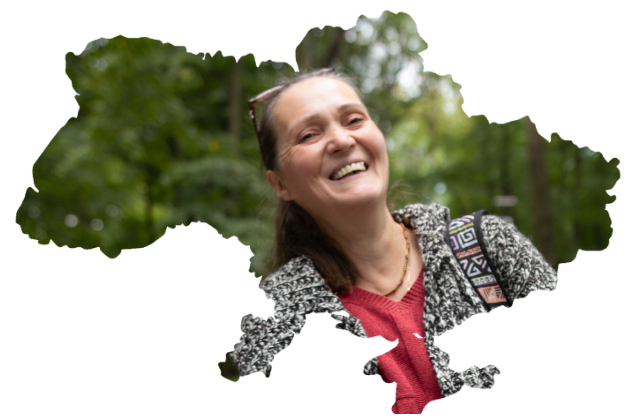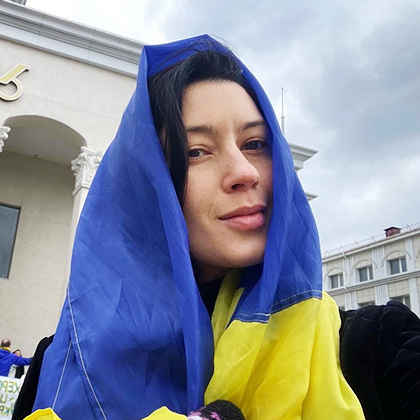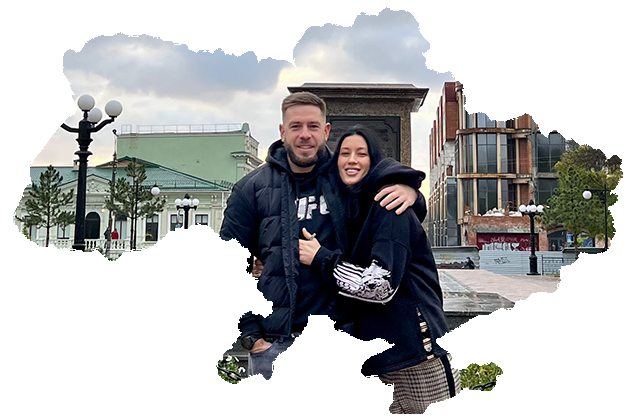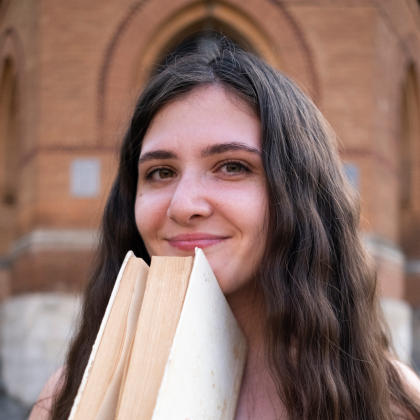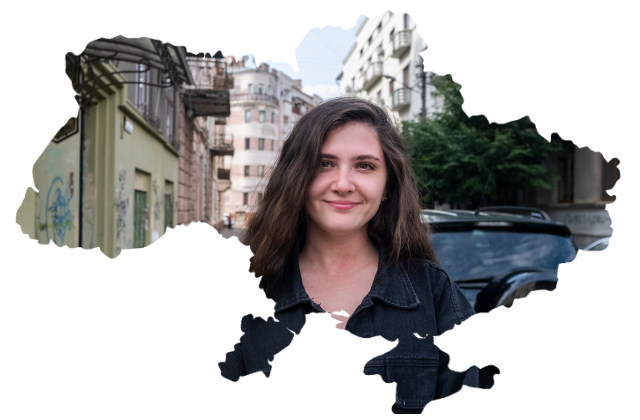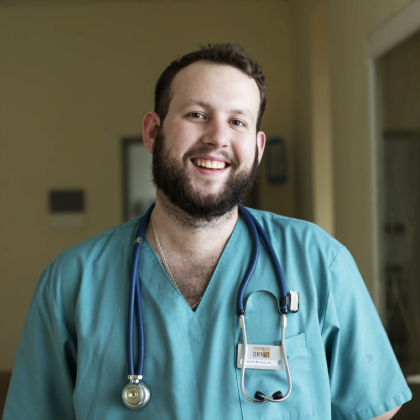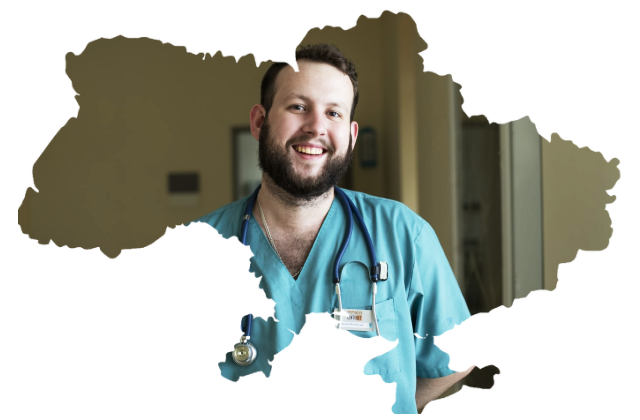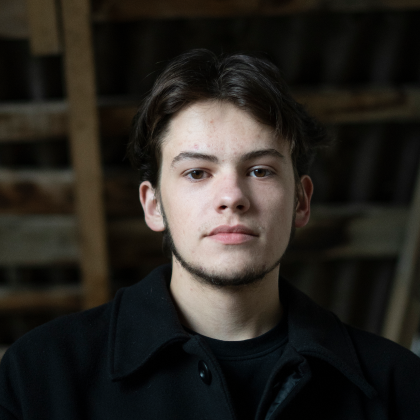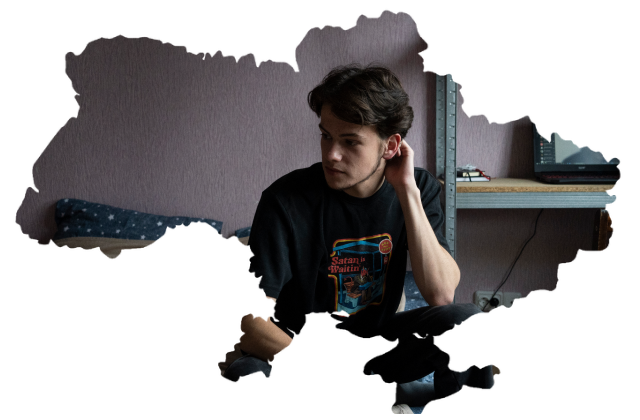Natalia Barannyk
Cultural manager, social activist
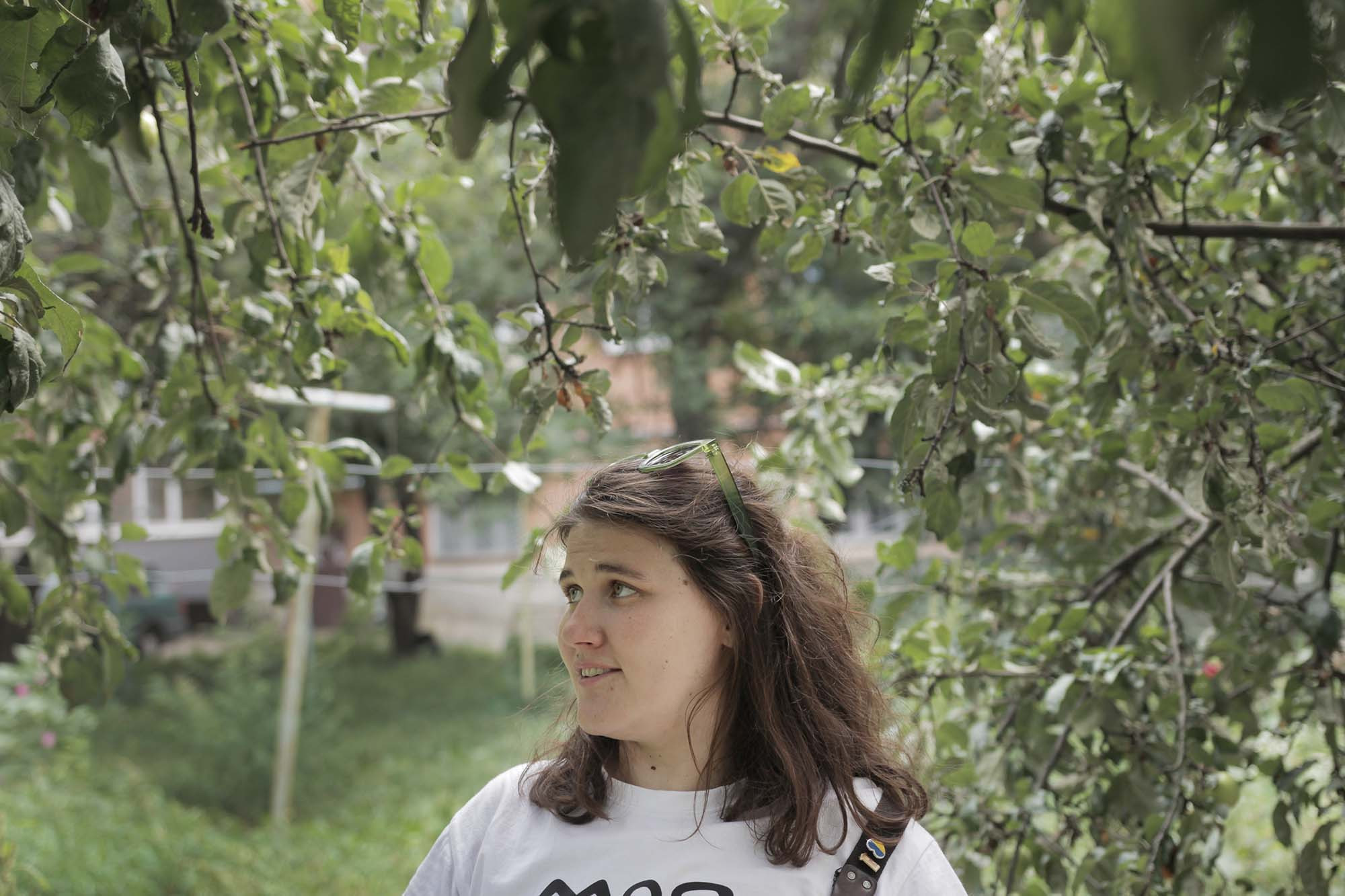
Bakhchysarai — Poltava
In 2013 I was studying in Simferopol at the National Academy of Environmental and Resort Construction at the Faculty of Architecture. Still, every day after classes, I would go home to Bakhchysarai.
When the Maidan broke out, I followed the news together with my homeland. I sympathized with the movement, but I was quite young back then, and not very independent in my decision-making and attitude. The territorial and mental distance, as well as the lack of a strong connection between Kyiv and Crimea, did not encourage any quick decisions. I mean taking the flag and leaving off to join the protest. I didn't have a feeling that I could make a difference and that it was exactly me who was missing there.
On February 18, 2014, the first protesters died in Kyiv. At about the same time, unclear movements emerged in Crimea, and the first armed soldiers, "little green men", appeared. I remember that on February 26, as usual, I arrived in Simferopol by shuttle bus, went to a stationery store, and bought the paper for drawing. On my way to the university, I passed by a military unit, and I saw "little green men" there. I thought: "What the hell? That's weird." I could not believe that some armed people could just walk in and cordon off a military unit... It felt as if they were making a movie around it.
Then the "little green men" cordoned off the military unit in Bakhchysarai. My mother and I and the other girls marched for peace. Back then there was an unspoken rule in our town: men and women were to march separately at protests. That was to prevent women from getting hurt as a result of provocations. But our boys were walking on the other side of the street. There was a feeling that we were being protected.
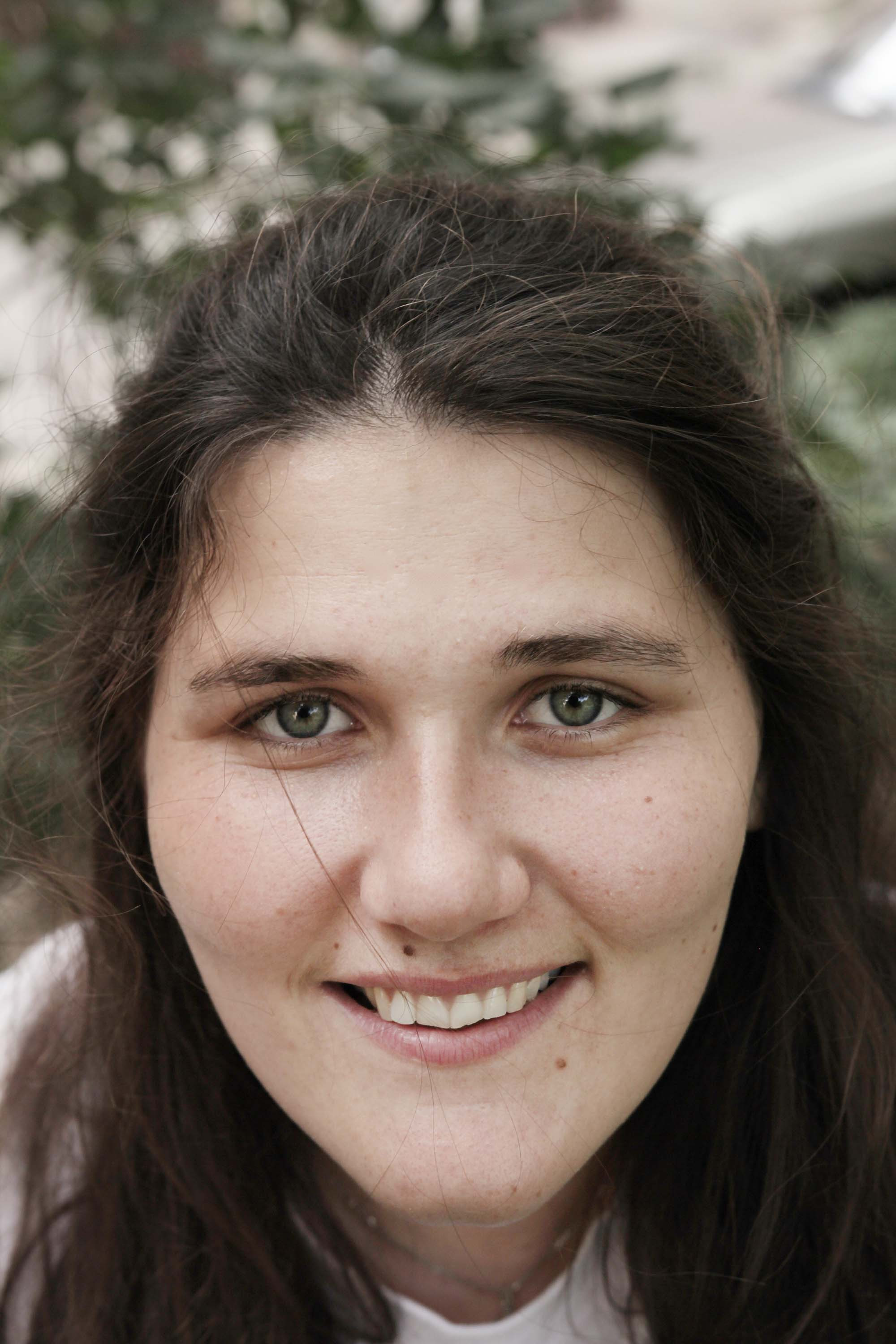
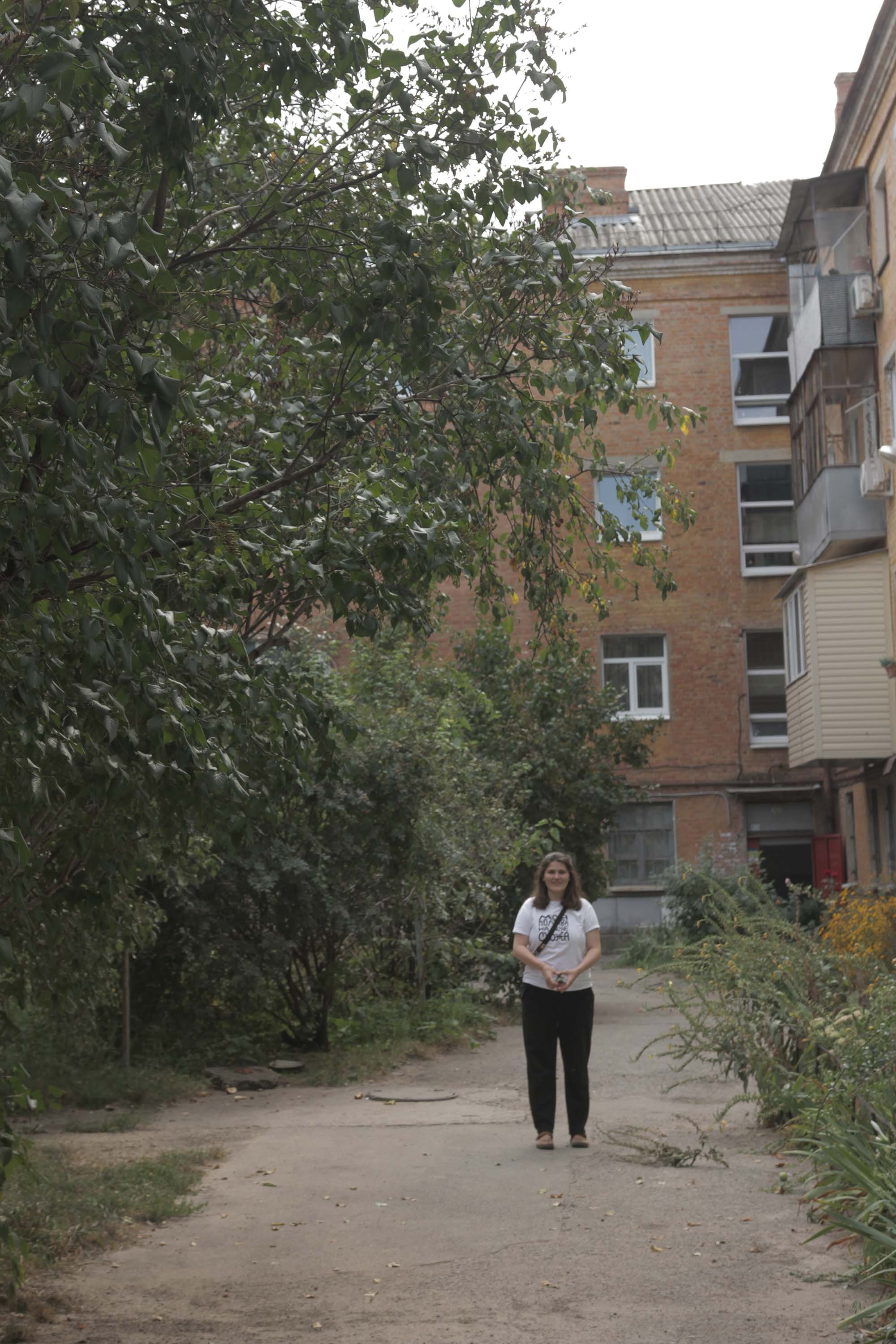
We came out to protest twice. At that time there were already a lot of other people marching for Russia. And it was dangerous to go and tell them that they were wrong. My bubble burst: the only ones who supported Ukraine were my family and our Pakistani neighbours. They gave us a Ukrainian flag as a present. First, we hung it on the window, then on the ceiling, and one day, I took it with me to Poltava. Among my classmates, there were only a few people who supported Ukraine, the rest just kind of dissociated.
But in the theater studio that I attended, they bugged me, saying that there were Bandera people in Kyiv. For some time I tried to convince them of the opposite, but I couldn't handle the pressure. They threw a bunch of inverted facts at each of my arguments. Russian propaganda was working at full power. My friends seemed to believe what they wanted to believe, so there was no point in convincing them.
I'd always known I'd be doing something useful: building something new or changing something. Before the annexation of Crimea, I'd wanted to do that in Bakhchysaray, but not ever since. I had that scary picture in my head that I stayed in Bakhchisaray, and after 10 years, after having done so many good things that I would do there, I heard a rebuke from a person I knew: "You see, it was Russia that gave you the job and the opportunity!" "Yeah," I thought to myself, "It also gave life itself! It didn't lock you in a cage!"
Russia had taken from me a clear life in the form of a home, a mother close to me, and the prospect of working for myself. Before the annexation, my future seemed bright: my brother was an architect, I was a landscape designer, and my father worked in urban planning. And then I was just thrown into the unknown.
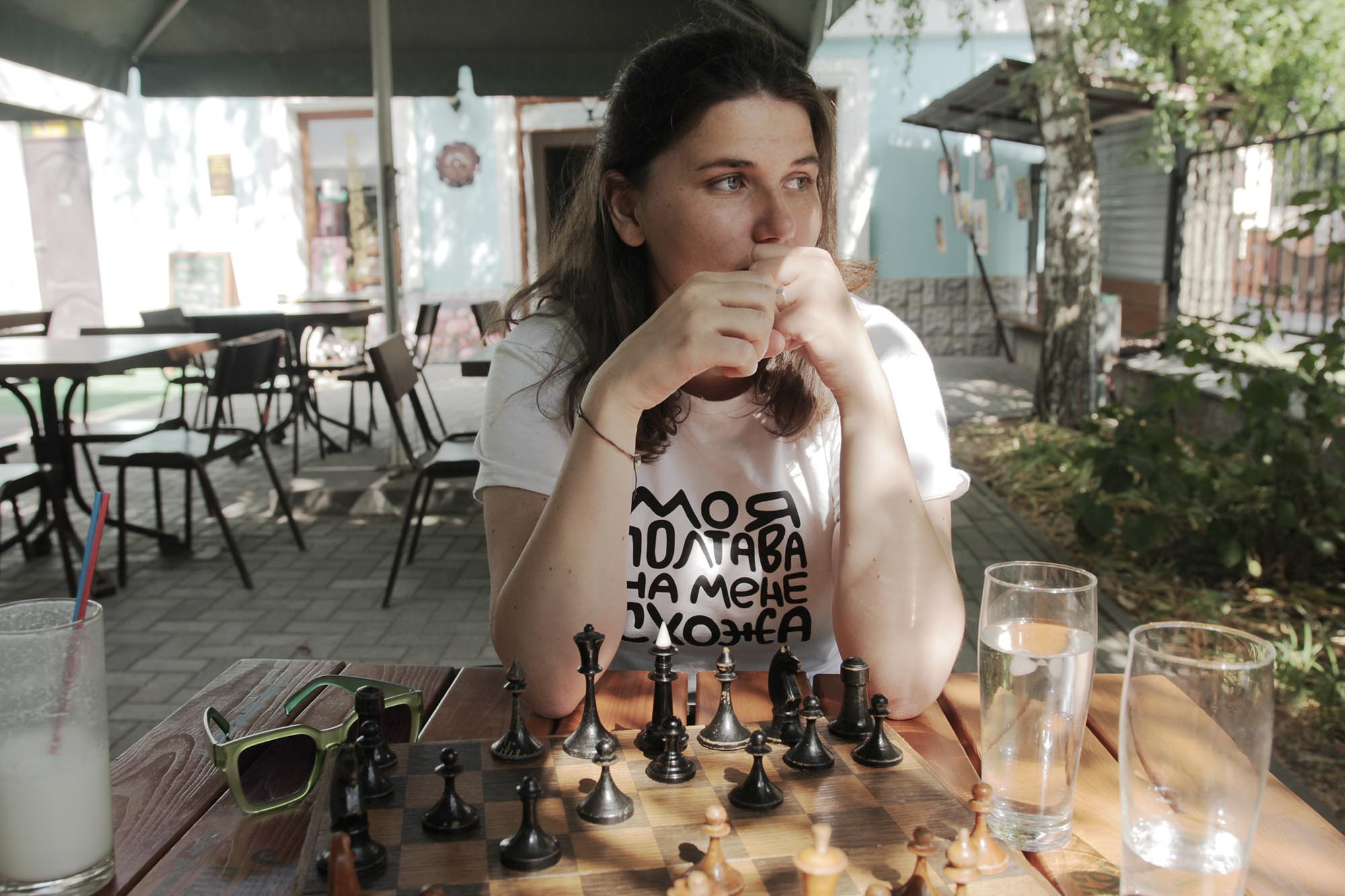
I was finishing my third year and realized that I didn't want to get a degree from a university not controlled by Ukraine because such a diploma could only help my career in occupied Crimea or Russia. And that was something that went against my principles.
My parents and brother got their education in Poltava. In March 2014, I asked my brother about my chances of going to a university in Poltava. He assured me that everything would work out. The next day, when I was on my way to Simferopol, my mother called to tell me that there was an opportunity to transfer there to study on a state-financed basis. But I had to make a quick decision and get ready with my documents and stuff within a week and come straight to Poltava. I was like, "Yeah, of course." And the next moment I start crying because I understand that it might be the last day I see my classmates.
The only thing I remember from the road is my mother seeing me off at the Simferopol railway station. I even have a photo: she's all covered in Ukrainian coats of arms, and we're both wearing the vyshyvanka embroidered shirts. I looked at her then and thought: "Is this the last time I see you?" The next I just remember is standing in the middle of the main street of Poltava and being like, "Now that's what I call April 1st! Happy Fool's Day!"
I knew some teachers in Poltava, who were my parents' acquaintances. Also, my brother lived there. It gave me peace of mind that there were adults I could turn to in case of emergency. Later I joined the "I Po Vsiomu" drama studio, run by a classmate of mine. It was important for me to be in projects where I could socialize and do things that were different from the ordinary.
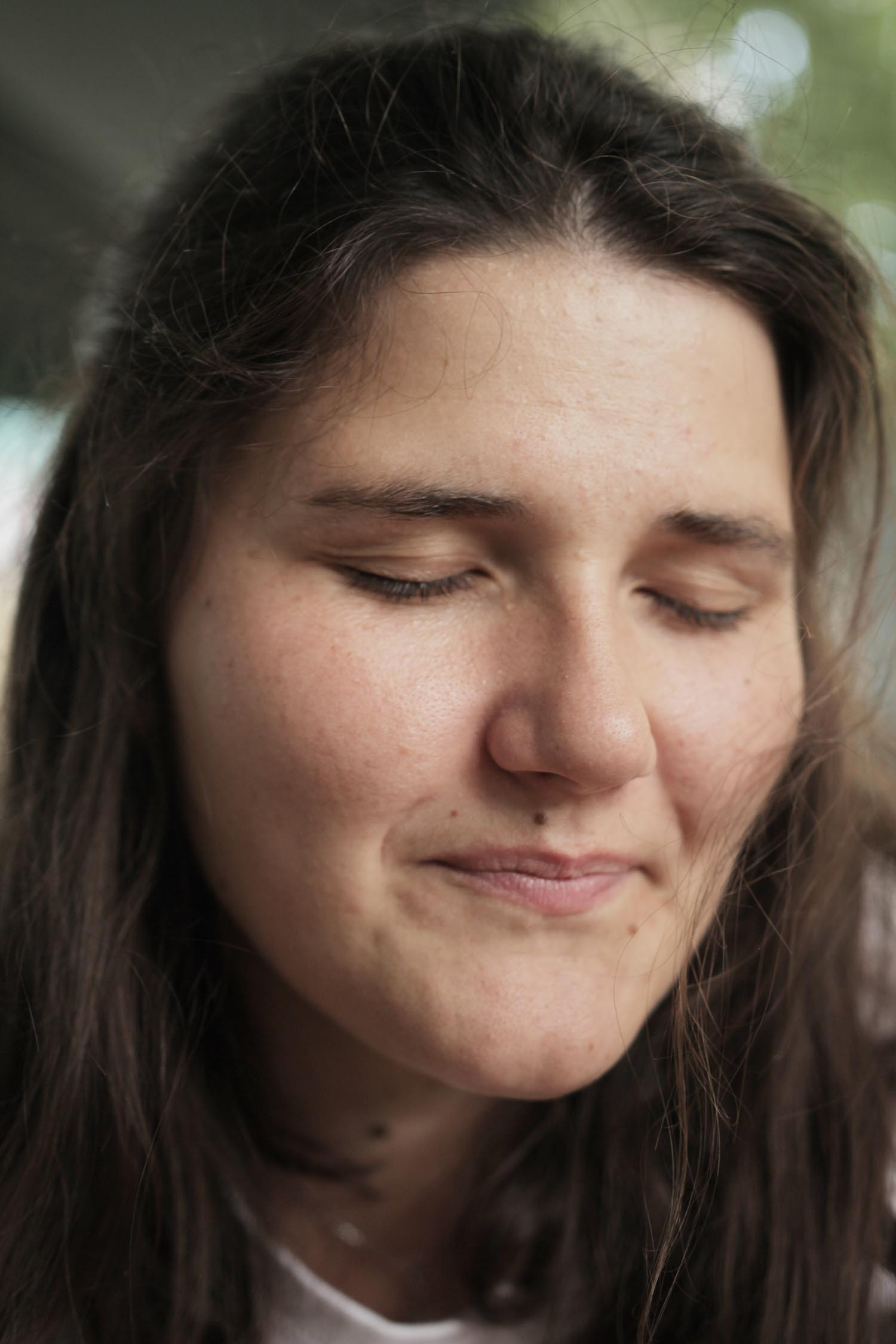
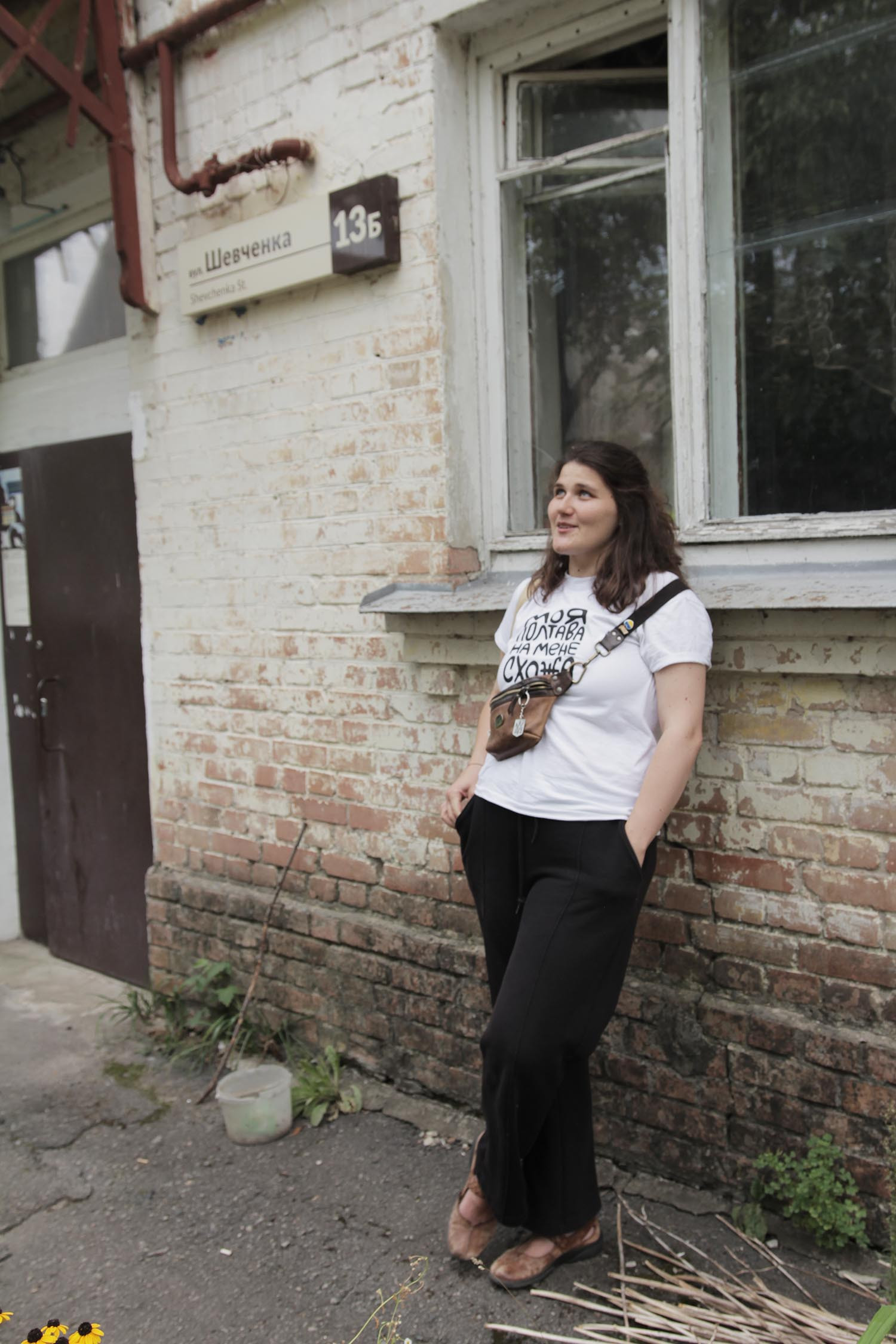
People I met made me feel like a flower or a diamond because everyone reacted so passionately to where I came from: "Are you from Crimea? Wow!". The trail of unconditional curiosity followed me for another three years. At first, I loved that attention, but then it became embarrassing because it seemed that I was being noticed and judged not by my qualities, but only because I was an immigrant. But eventually, I grew proud of it, because I could not find any migrants from Bakhchysaray in Poltava. It was like I was the only one! I loved that identity of "a Crimean person."
After I got into the community of social activists, it was the documentary theater and projects that helped me desire a better life. I could see our difference: my community in Poltava was more progressive and more promising than in Bakhchysarai. It motivated me. We have everything to make our city and our country better. Because we know how to think and how to do things. The difference is that the initiative comes from below, here it's us who's evolving, while in Crimea the initiative comes from above, from the state, making people passive.
Russia took from me the opportunity to make my hometown better, so I started making Poltava better: I joined rallies and engaged in informal education. When I heard the Russian language or saw reforms being ignored, I thought: "Oh, no. This is not good. How are we different from Russians then?" I wanted to force positive changes in Poltava, to push people. I feared that the history of Crimea would repeat itself. I wanted people in Poltava to understand the value of Ukraine sooner than I did back in 2014.
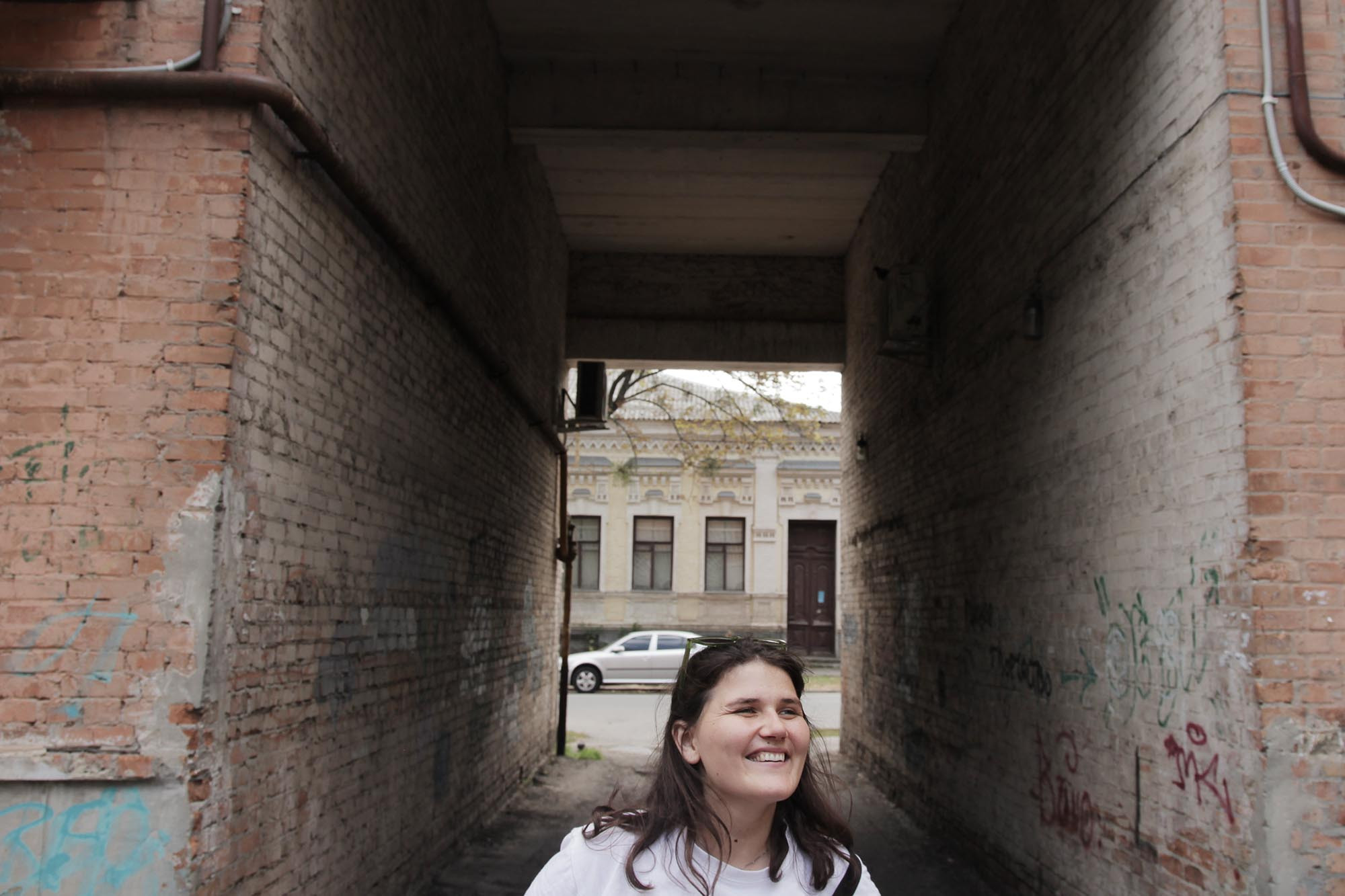
On February 24th, I decided to stay in Poltava and help here. That plan made more sense to me than leaving or going to fight somewhere else. The "MlSTOHAB" team, where I now work, joined the "Defense of Poltava" social movement and started supporting the Ukrainian military.
When Ukraine takes Crimea back, I will run with my revolutionary grin over there. We will create a space for personal, artistic, and civic development there. We will make a modern cultural product that will encourage thinking. There's a lot of room for work there. I still address my Crimean friends via my stories on Instagram to make them understand that the war is going on and people are dying.
Russia keeps throwing in bogus stories all the time, so there's a risk of losing these people altogether.
I came to the conclusion that you are your home. You can make a home for yourself anywhere. Right now I'm comfortable in Poltava. And the people here are like a garden around my house.
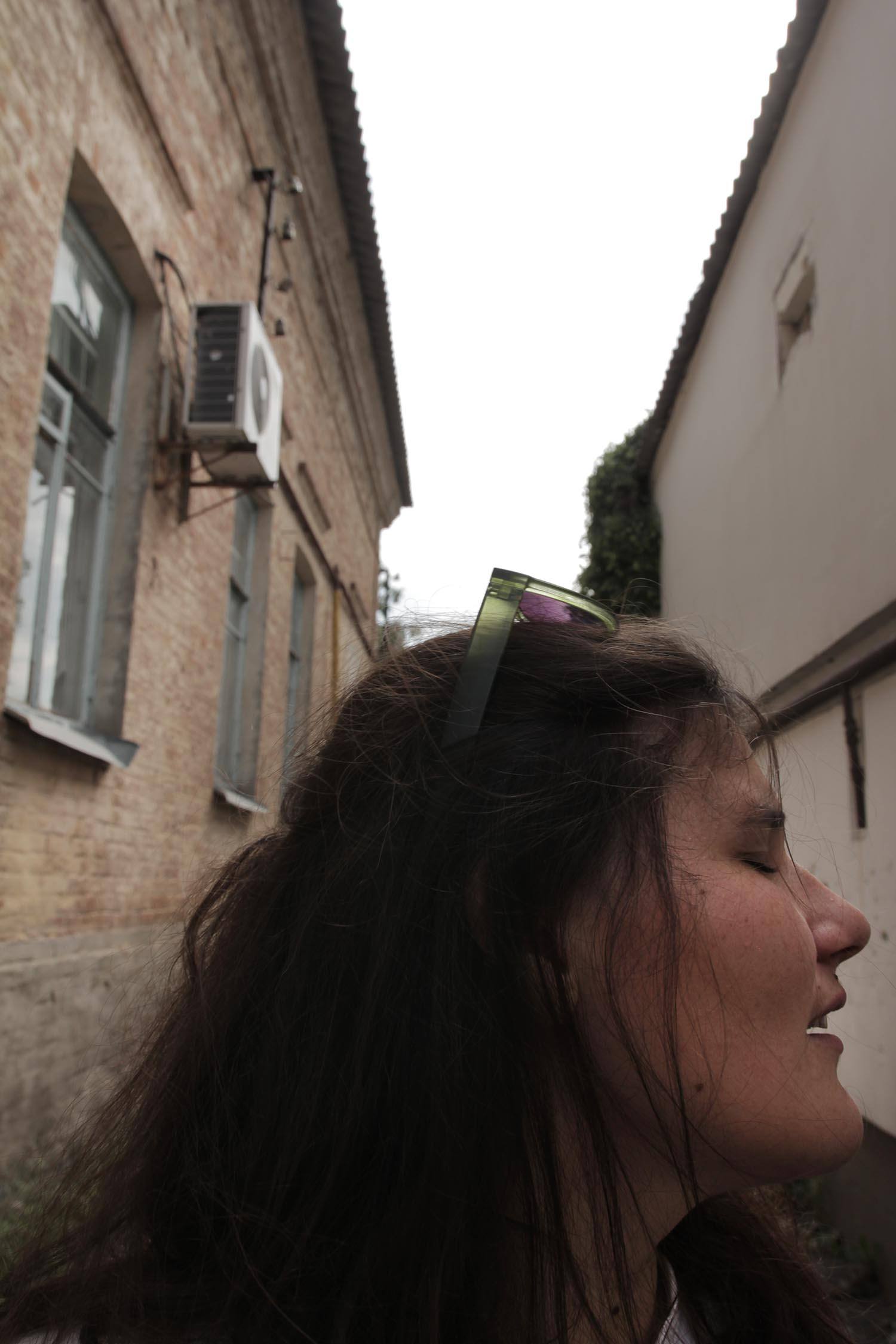
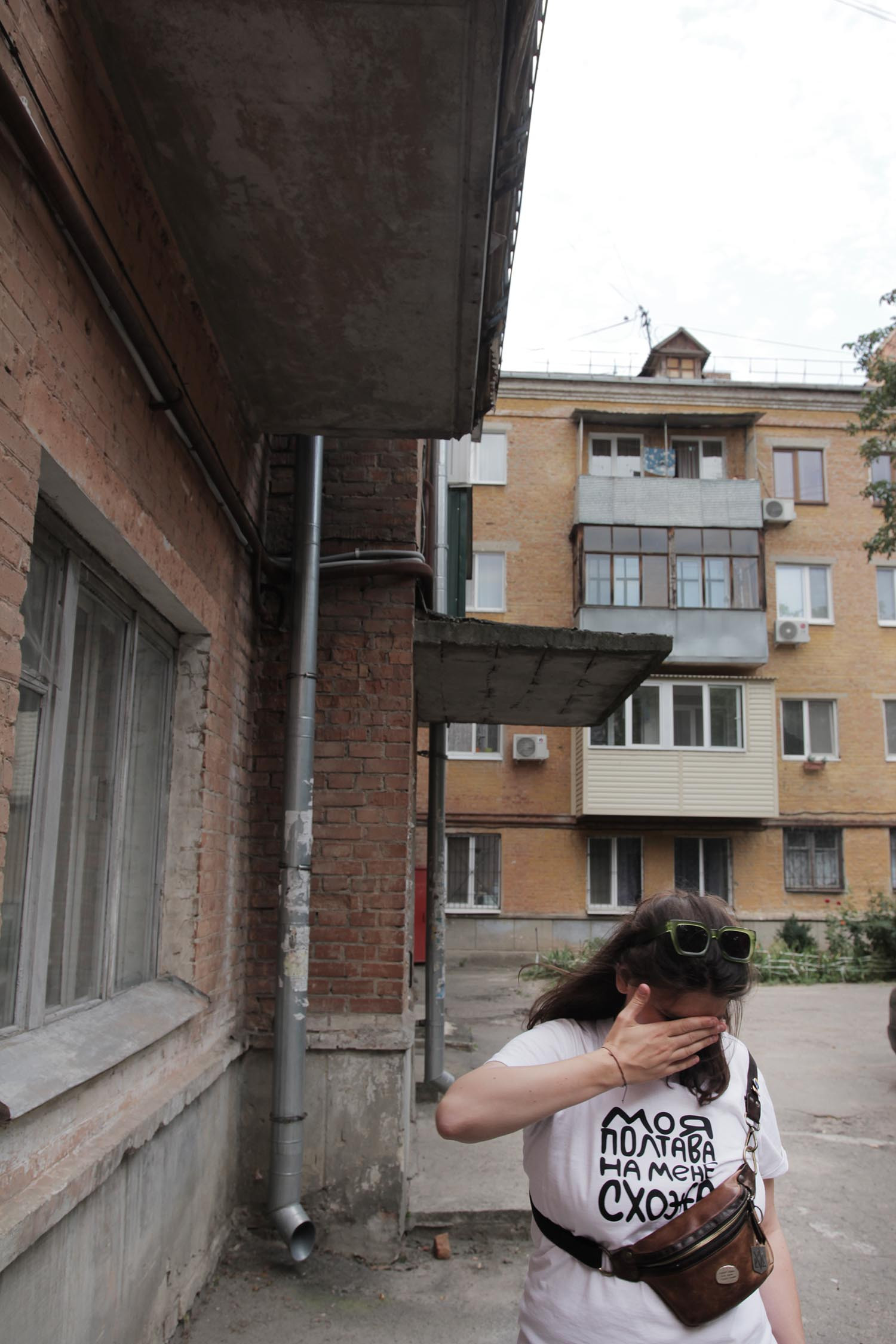
Recorded by Nadiia Mykolaienko
Translated by Volha Mikhnovich
Photographed by Vladislav Yevdokymov
